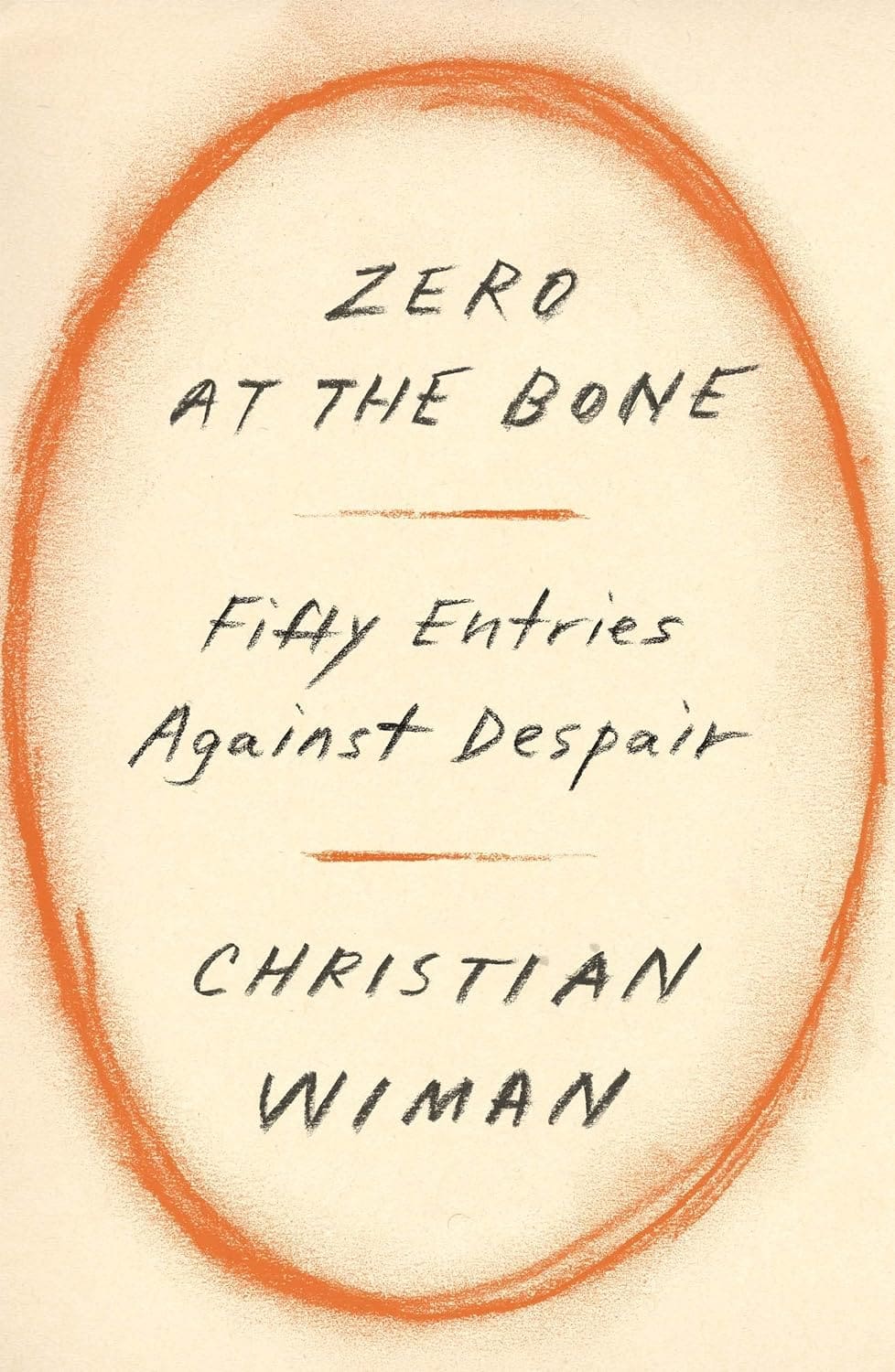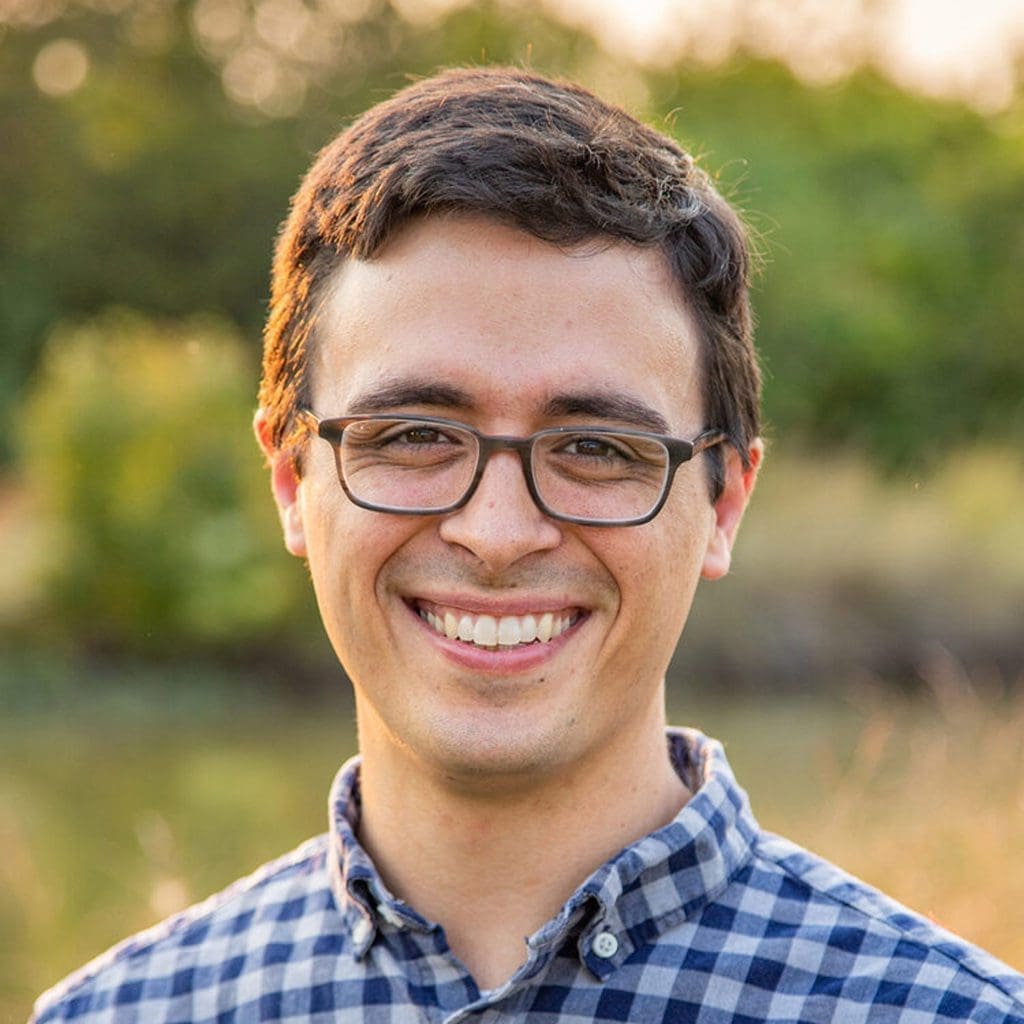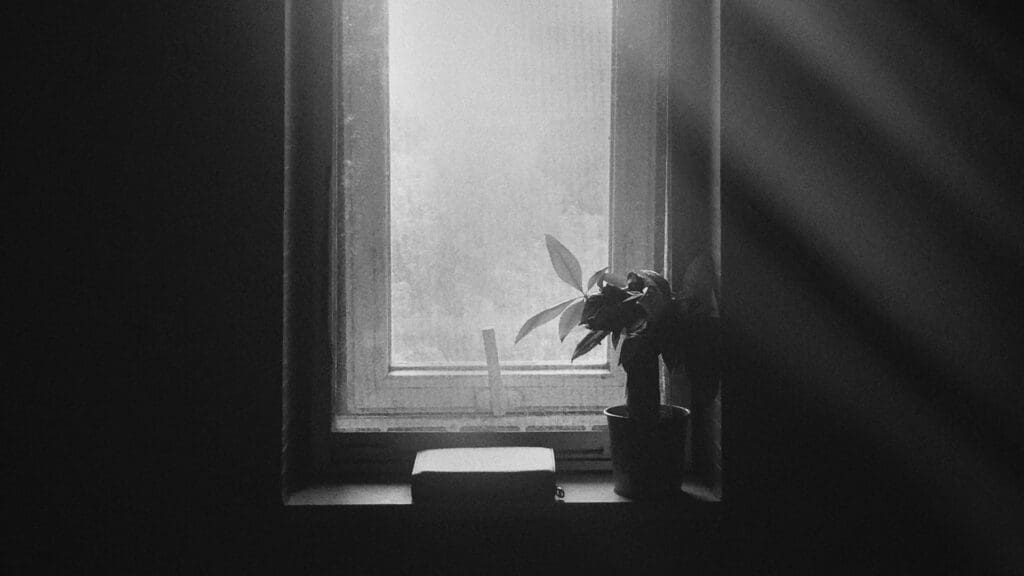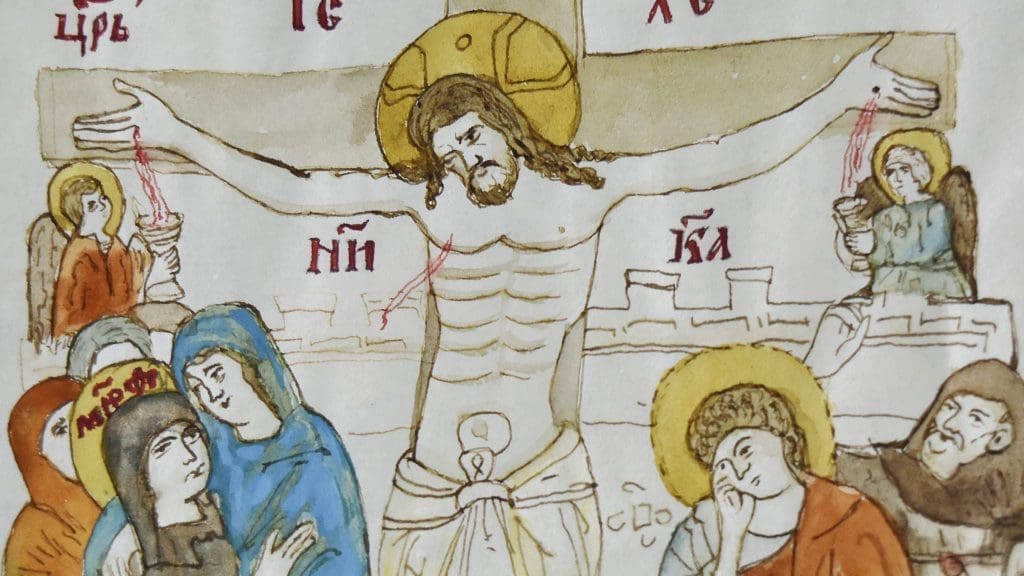T
Theology comes in many forms, but consider just two: kataphatic and apophatic. The first refers to positive speech about God. God is good; God is love; he is like a loving father or a brooding hen. Such descriptions describe God in ordinary language. For the little word “God,” you could substitute the name of your spouse or your boss and you’d still have a meaningful sentence. Scripture and liturgy all trade in kataphatic talk. Christianity is dead on arrival without it.
Apophatic speech, however, negates affirmations about God. God is like a father. But run through all the ways God is not like a father, and you’re left with more, and much bigger, differences than similarities. Avoiding metaphor will not dodge the issue, since every quality we ascribe to God is based on this world. There’s something more than quantitative difference involved in the shift from creatures to Creator. It’s qualitative. How can our language and concepts reflect that fundamental difference?
Apophatic theologians answer this question by speaking about God through denial. They say things before unsaying them—sometimes by unsaying them. And after negating their affirmations, they proceed to negate their own negations. God’s goodness may be utterly unlike ours, yet that unlikeness itself remains unknown to us. Apophasis, then, isn’t a demand for silence before the shattering reality of God. It’s a call to persevere in never failing to speak of God, in the knowledge that all we can do in speaking of God is fail.
Apophasis is not finally a method of theology. It’s a practice of prayer, an answer to St. Paul’s command to pray without ceasing, which is why it’s more at home in the monastic and mystical tradition than in academic discourse. We talk and talk and talk about God, ever and always failing by definition. In and through our endless talk, we find ourselves talking to God and not only about him. Sometimes—to our delight or, just as likely, to our terror—God talks back.
You can see why apophasis—as a theory and practice of language, yes, but just as much a style or mood—might appeal to poets. Poetry is the art of saying with words more than words can say. Poets are not masters of words; or, at least, the mastery lies in their recognition of the incapacities of language and their resilience with the failures that result. Is human language metaphysically load-bearing? Poets know the answer is affirmative so long as it’s immediately negated.
Of apophasis in all its varieties, Christian Wiman is a poet without living peer. Or if that’s too grand for you—I wouldn’t really know, since I read poetry the way Wiman reads theology, for nourishment and joy and the prick of provocation, which is to say, not professionally, not with a skeptical and parsimonious eye, which is to say, the way we all read before we’re taught to stop it—then say simply that Wiman’s work stands out from the crowd. Whether he’s writing prose or poetry or something in between, you know his voice at once. In part this is because he’s always writing about the same thing (more on that below, and why it’s not a criticism). What he writes about, though, is indistinguishable from how he writes. That’s what makes him great.
All of Wiman’s writing is one long attempt to see in everyday life the God who is not absent from it, and having seen it to say it, and then to unsay it, and finally to unsay the unsaid.
Happily, that greatness appears not to be in dispute. A professor at Yale Divinity School and former editor of Poetry, widely published in places like The New Yorker and Harper’s, Wiman is about as celebrated as you can be as a poet. Or as a Christian. A decade ago Wiman published My Bright Abyss: Meditation of a Modern Believer. In it he expanded on a brief essay seven years prior that recounted his coming to faith (if you want to call it that) in God (if you must call it that), prompted among other things by a rare cancer diagnosis. It’s clearly a kind of humiliation for Wiman that he turned to Christ in response to a terminal illness. Artists abhor the stock type. Imagine the horror of becoming one!
But he did. And the only honest way to process his conversion—doubtless a word that triggers his gag reflex—was through poetry. As he wrote then, “We need a poetics of belief, a language capacious enough to include a mystery that, ultimately, defeats it, and sufficiently intimate and inclusive to serve not only as individual expression but communal need.”
Accordingly, Wiman writes books like nobody else. His latest, Zero at the Bone: Fifty Entries Against Despair, is no exception. He has published discrete works of “poetry, translation, criticism, theology, anthologies,” but this “storm of forms” thunders from one and the same mind. They belong together. The result is a sort of commonplace book of wisdom, verse, prayer, memoir, metaphysics, and confession, interspersed liberally with excerpts and voices not his own. Call it a poet’s pensées.
As with Pascal, Wiman’s style is its own statement: “I should be honoring my subject too much if I treated it in order, since I am trying to show that it is incapable of it.” Like Pascal, too, Wiman’s faith is simultaneously modern and anti-modern, doubtful yet trusting, pessimistic yet hopeful. On one hand: “We run heedlessly into the abyss after putting something in front of us to stop us from seeing it.” On the other: “What can be seen on earth indicates neither the total absence, nor the manifest presence of divinity, but the presence of a hidden God. Everything bears this stamp.” These are all Pascal. But here is Wiman: “Religious despair is often a defense against boredom and the daily grind of existence. . . . For the most part our dark nights of the soul are, in a way that is more pathetic than tragic, wishful thinking. God is not absent. He is everywhere in the world we are too dispirited to love.”
All of Wiman’s writing is one long attempt to see in everyday life the God who is not absent from it, and having seen it to say it, and then to unsay it, and finally to unsay the unsaid. Part of what he unsays is himself. For “self” is another little word Wiman finds bewitching. Do I have any more access to my “self” than I do to deity? He’s doubtful. Sometimes it is our certainties about our selves that need puncturing, and the only tool sharp enough for the job lies beyond this world—that is, beyond words. (Wiman thinks the New Atheists should doubt their own existence before they turn to God’s.)
Enter poetry. Why is one-third of the Bible in verse, anyway? Because the subject matter requires it. Poetry is the mother tongue of all religion. As Rowan Williams has written, both poetry and theology are instances of “language under pressure.” They invariably “generate a steady level of unsettling alternative or supplementary meanings in the margin of the simple lexical sense.” Far from “a fully coherent schema . . . our words about God [ought] to be—as it were—carefully calculated shocks.” For Wiman, what is shocked in the process is not only language but the self.
Zero at the Bone consists of “entries”—short poems, long essays, scraps of quotations and aphorisms—“against despair.” For Wiman despair, not unbelief, is faith’s opposite. The blessing we receive for wrestling with God, or perhaps for wrestling with language about God, is not blessed assurance or ecstatic visions or lack of suffering or a private jet. It’s freedom, if only for a moment, from despair. The sign of this freedom is not a strut. It’s a limp.
As he writes in the opening entry:
Or as he puts it late in the book:
Wiman was raised “in the charismatic and claustrophobic atmosphere of West Texas,” in small dusty religious towns like Snyder and Sweetwater and Abilene (where I live). By his own admission, he’s never quite ridden himself of the gut-level association between Christian faith and Bible-belt fundamentalism. Since everyone else appears to share the association, it’s frankly embarrassing for God to have roped him back in with such a deplorable crowd. For this reason Wiman has become something of a patron saint for heterodox believers who find themselves in these environs. They can’t give up on Christ, but some days they wish they could. Certainly they wish they could part ways with the rabble he so stubbornly calls his followers.
Poetry is the mother tongue of all religion.
Hence, for Wiman, the sometime shame of Christianity. And yet, hard medicine that it is, he knows he has to drink it. It’s the shame of himself he’s drinking too, because he never lets his potential for condescension off the hook either. Given the circles he travels in, he concedes that it “requires no great courage for me to celebrate [a] spirit of productive doubt.” Yet “you can make an idolatry of doubt. You can become so comfortable with God’s absence and distance that eventually your own unknowingness gives you a big fat apophatic hug. One could argue,” therefore, “that when doubt becomes the path of least resistance it becomes the very thing that a faithful person must most resist. And resistance is often a matter of language.”
Moments like this come as a relief in Wiman’s writing. His childhood, his vocation, his social context—these all conspire to make Christian faith, even believing in God at all, the primary existential question. And not only for him, but for all “modern” people. The personal then bleeds into the prescriptive, which means that sometimes Wiman can’t help but lay down the law for what others must believe, or are permitted to think, or are allowed to feel, given the century in which we live. In other words, since it’s hard for some people to believe in God, perhaps artists and intellectuals especially, then any honest person has to admit to the same experience. So that, if you find someone who won’t admit it, then you know on the spot that he is lying, in denial, childish, or fundamentalist. Unlike you.
This tendency is too often on display in Wiman’s older work, but it is much more muted in the new book. Whether it’s a sign of his maturity or my insecurity, I’m grateful. Not everyone has the same spiritual struggle. Nor is there any reason to suppose they should. What is hard about Christianity is not faith per se, though it’s true that some of us are wracked with doubts. No, what’s universally and intrinsically and unavoidably hard about Christianity is faithfulness. Paul’s life didn’t get any easier once he saw Christ with his own eyes. As Christ said to Ananias, “I will show him how much he must suffer for the sake of my name.” Following Christ would not become any less demanding even if we all knew beyond a shadow of a doubt that the Nicene Creed is true. Nor would the pressures on our language be thereby relieved.
The trouble with God is God. The trouble, and the grace, never relent. And the power of Wiman’s book is not just that he knows this but the vulnerability with which he shows it. The most moving entry is a long-shelved essay about his father and sister. He never published it because there was “an unacknowledged sin festering in it.” He’d lost faith, he’d succumbed to despair, not in himself, but in his family. The Christ who’d rescued him couldn’t rescue them, or so he’d supposed without realizing it. Yet “it means nothing to make a space for the miraculous in one’s work if one can’t recognize some true intrusion in one’s life.” The intrusion came through his sister, who found Christ in the hell of a prison cell.
It turns out that Hopkins’s “ten thousand places” is all-encompassing. It includes solitary confinement. It might even include your home.
Following Christ would not become any less demanding even if we all knew beyond a shadow of a doubt that the Nicene Creed is true. Nor would the pressures on our language be thereby relieved.
Years ago Ross Douthat wrote that “secularism is weaker than many people think.” I take him to mean, first, that few people live truly secular lives, denuded and divorced from any and all spiritual reality, spiritual experiences, encounters with the nameless transcendent. And second, that as a force or an epoch or an ideology, secularism is shallow and therefore vulnerable. It is not an absence—if it were, it might be interesting—but the thinnest of presences, so brittle as to dissolve at the merest touch. Perhaps most damning, it is simply, unbearably boring.
Whether or not he would agree, I take Christian Wiman (the man and the work) to be prime evidence of the truth of Douthat’s observation. And not only him, but countless others: Marilynne Robinson, Denise Levertov, Franz Wright, Mary Karr, Wendell Berry, Paul Kingsnorth, Jamie Quatro, Francis Spufford, Dana Gioia—the list goes on, and these are just poets and novelists from this century.
Why is secularism—materialism, scientism, principled and knowing godlessness—so boring? Because it fails to face up to what Wiman calls the “loneliness no human love can ever quite answer.” He then adds, “And if you are not lonely under this dividing and indifferent blue, if you do not feel, even amid your moments of happiness, some absolute inwardness that is absolute otherness, then, friend, you are either preternaturally enlightened or completely unconscious.”
Why is secularism—materialism, scientism, principled and knowing godlessness—so boring? Because it fails to face up to what Wiman calls the “loneliness no human love can ever quite answer.”
What gives Wiman’s words such credibility is the hell his life has so often descended into. Poverty, addiction, mental illness, suicide attempts—all of the above his own or family members’ or both—the indignities of the cancer chair, dreamless screamless nights of unspeakable pain: no wonder the final essay of the book is a meditation on the book of Job. “These lost and charnel thoughts,” he writes in one poem, “speak to me of a pain that saves.” In another poem, he finds himself behind a shed, weeping, “in thrall to an untranslatable power.” For a brief moment “I was myself, and I cried silence / adequate to the hour.”
So much that is wrong with our culture, Wiman argues, is that “we would evade our pain.” Yet like so many, “I don’t know how to talk about suffering without talking about God,” and vice versa. If modern life is founded on avoiding the one, it’s no wonder we so scrupulously avoid the other.
“Zero at the bone” is the phrase Wiman gives to the sense—felt rather than arrived at through rational proofs (Pascal again: “All our reasoning comes down to surrendering to feeling”)—that God and suffering are, if not one, then intimate, inseparable, and ever-present. It’s the last line of an Emily Dickinson poem about a snake, that “narrow fellow in the grass.” Is the serpent a cipher of pain, of despair, of temptation, of joy? Yes. Just as a lion figures both Christ and Satan in Scripture, a snake does here. The image of ouroboros recurs throughout the book, a picture of the circle of human knowledge, being “always alert to the ultimate truth that it cannot know any ultimate truth, including the one this sentence is attempting to articulate.” The assertion eats itself, yet there it stands on the page, uneaten. Words aren’t struck through in poetry and theology worthy of the name; they’re added to.
Zero, too, is a circle, and for Wiman zero is nothing, the nihil, which is simultaneously the self, the abyss, the despair the self feels peering into the abyss, and the face one realizes (but does not see) staring back—a face not unfamiliar with dereliction, and thus a face we can without apology call love. “It’s a wonder,” he writes, that “Jesus didn’t shatter from the sheer pressure of all those unspeakable pains around him. But then, eventually, I guess he did.”
The darkness of Christ crucified is, for those with eyes to see, the epiphany of divine love. “I do not know how to come closer to God,” he writes in one poem, “except by standing where a world is ending / for one man.” Is the man Wiman or Christ? Is the suffering his or God’s? Here’s one answer, from another poem, which is no answer at all, because it refuses the terms of the question:
Wiman invites his readers to contemplate the invitation of St. Bonaventure: “Let us then die and enter into this darkness,” the darkness of the cross, a darkness that is both “silence” and “paradise”—“the garden / ark and vacant / tomb” that is “this world,” as Franz Wright puts it. Here, which is there, in the tomb and on the cross, the only voice we hear is Christ’s. He does not answer our questions; he asks one of us instead: Who do you say that I am? Let Wiman have the last Pascalian word: “There is no one answer to Jesus’s question, and yet you must wager everything upon it.”







